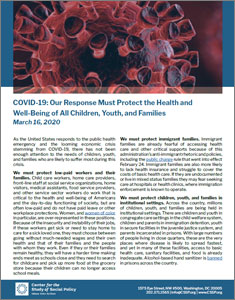As the United States responds to the public health emergency and the looming economic crisis stemming from COVID-19, there has not been enough attention to the needs of children, youth, and families who are likely to suffer most during this crisis.
Read a statement from CSSP President Judith Meltzer on COVID-19.
(2pp)
